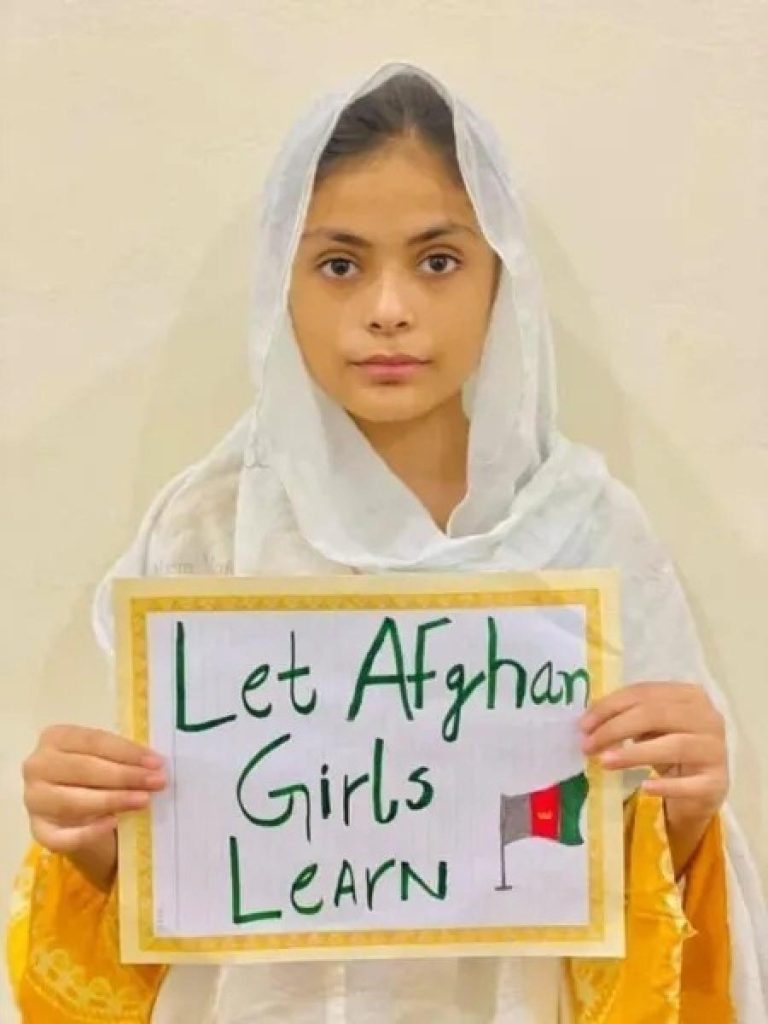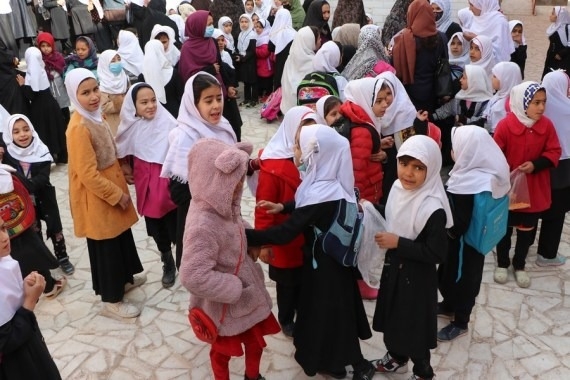The US Special envoy raised concerns at the Human Rights Council meeting, and said that there is urgent need for girls’ education in Afghanistan…reports Asian Lite News
More than 2.5 million girls are deprived of education in Afghanistan, US Special envoy for Afghan women, girls and human rights Rina Amiri said, pointing towards the plight of females in the war-torn country.
The US Special envoy raised her concerns on Friday at the Human Rights Council meeting, and said that there is urgent need for girls’ education in Afghanistan. Amiri said, “Every single girl deserves to access quality education.”
Due to the Taliban’s oppressive attitudes towards women and girls, secondary institutions and universities in Afghanistan that accepted female students were forced to close.
Afghan women are not allowed to work for UN agencies or international assistance groups as part of the most recent wave of restrictions, which sparked global outcry.
Since the Taliban seized control once again in August 2021, the group has consistently placed restrictions on women and girls, preventing them from participating in public life, employment, or education.
Taliban leaders have not only disregarded international calls for women and girls to be given access to education and employment. Apparently, they have also issued warnings to other nations not to meddle in Afghanistan’s domestic affairs.
Recently, Human Rights Watch has said that on the one hand, the Taliban continues to beg for recognition and foreign help, while on the other, they escalate repression of Afghan women and girls.
Taking to Twitter, the associate women’s rights director at Human Rights Watch wrote, “that the Taliban are reluctant for meaningful talks.” Barr stated on Twitter on Wednesday that she does not believe the meeting indicates the Taliban’s willingness to engage with the international world. She believes this topic has only been highlighted primarily during a meeting between a senior Qatari official and Hebatullah Akhundzada.
Previously, the Taliban spokesperson stated that Mullah Hassan Akhund, the group’s acting deputy prime minister, had asked Qatari authorities to play a significant role in developing confidence between Afghanistan and the international community at a meeting with his Qatari counterpart.
Despite Qatar’s strong relationship with the Taliban, Doha has criticised the Taliban’s gender policies targeting women.
Since the takeover, thousands of women have stayed at home since colleges and schools stopped accepting female students, and there are restrictions on the work that women and girls can do in local and international NGOs.
However, some women and girls have started working, such as by picking up trades or other commercial endeavours, in order to make money.
Kids forced to work in brick kilns
Economic challenges have forced children in Kabul to work in brick factories.
The children asked the Taliban to address the economic problems of their families and provide an education for them, the Afghan news channel reported.
A child labourer working in the factory, Roshan, said: “In other countries, children are studying but here we cannot, so we call on the government to provide an education for us.”

“Our future is destroyed. We are all children working here in this brick factory,” said Feroz, aother child labourer working in the factory.
Sujad, 11, is working in a brick factory in the Deh Sabz district of Kabul and said that because of economic challenges, he has to work with his father.
“My father is sick, and we work here morning until night, we call on the government to help us,” said Sujad.
“We call on the Taliban to allow girls to study and to become doctors,” said Zarena, sister of Sujad.
“My father is sick and cannot support our family, and we ask the Islamic Emirate to provide education for us so we can serve our country,” said Merwis, a brother of Sujad.
Meanwhile, the Taliban’s Ministry of Economics said that efforts are underway to provide education for children with the cooperation of foreign organizations.
“We are trying to provide education with the cooperation of foreign organizations so they can have an important role in the progress of their country,” said Abdul Latif Nazari, deputy of the Ministry of Economy under the caretaker Taliban regime.
The United Nations reported that 28 million people in Afghanistan need help and among them, 6 million are faced with famine. (ANI)
ALSO READ-Pakistan initiates barter trade with Afghanistan, Iran & Russia

